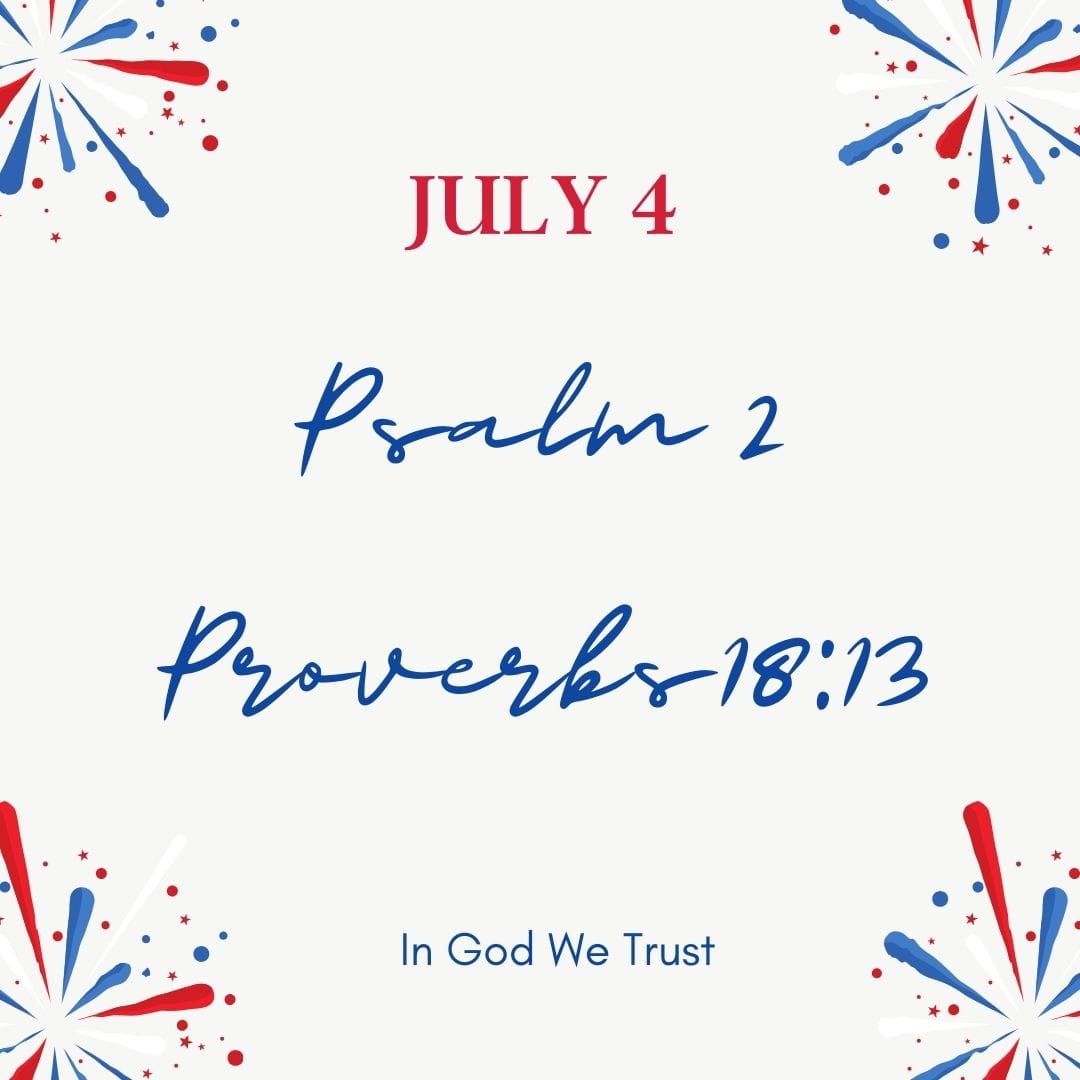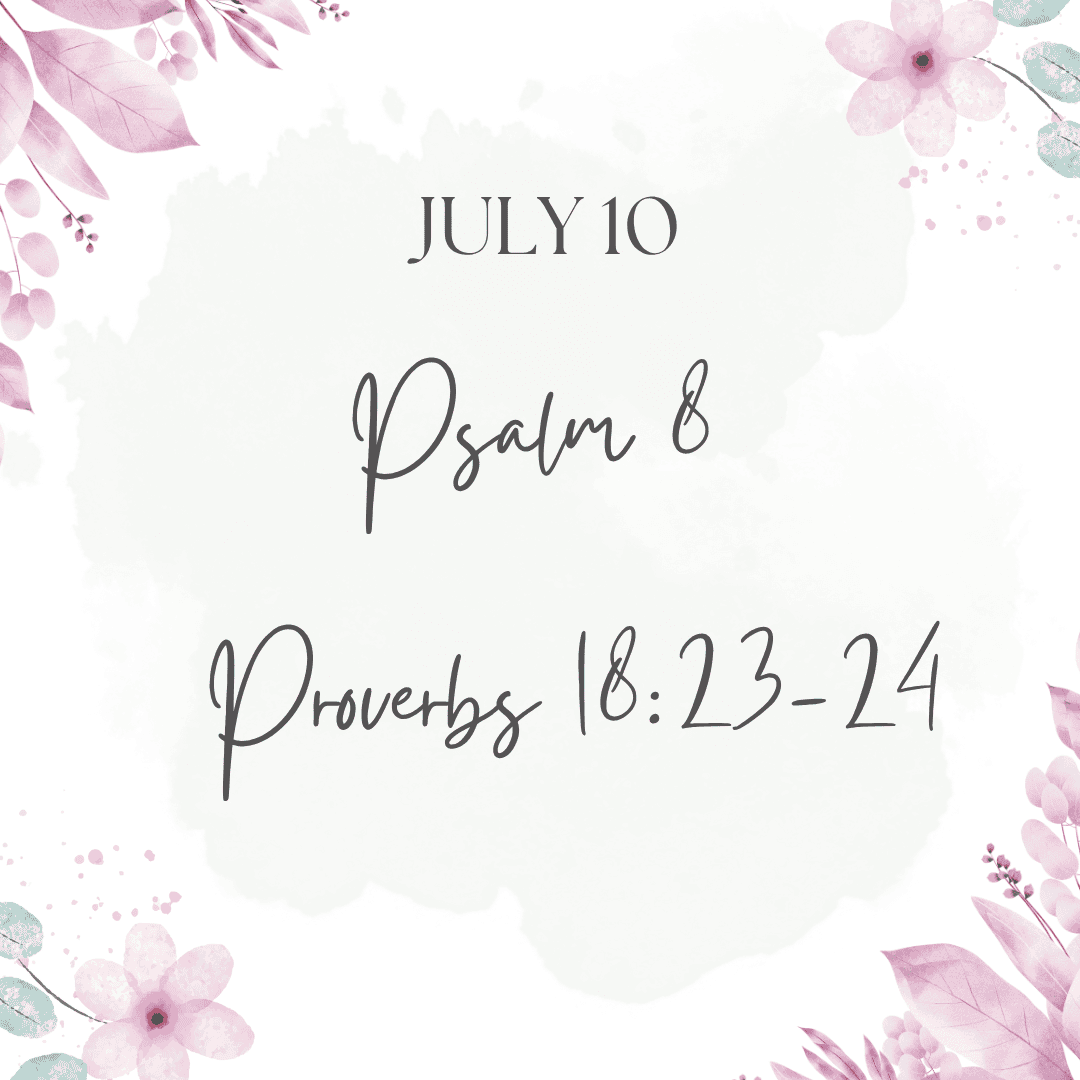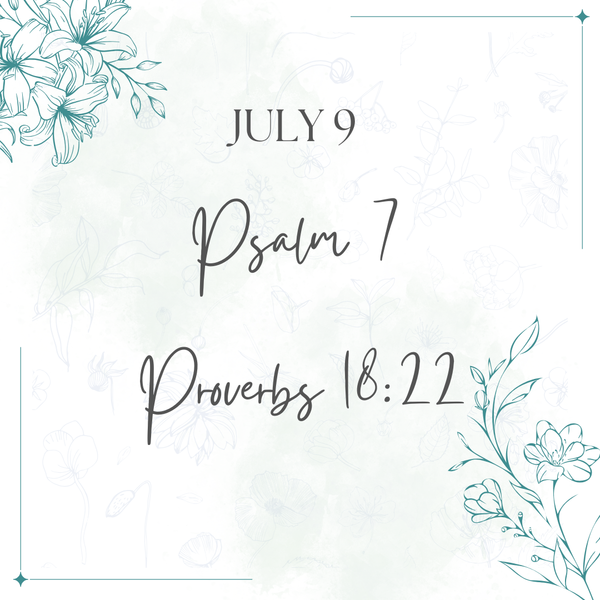July 4 Psalm 2:1-12 Proverbs 18:13

- According to Psalm 2:1–3, why do the nations rage and plot against the Lord and His Anointed? What are some modern examples of this rebellious attitude, and how might it affect our understanding of the world or sense of justice?
- How does Psalm 2:4 describe God's response to the raging nations? What does God's laughter and derision tell us about His power and perspective over human pride? Can you think of some historic events illustrating this?
- In Psalm 2:6–7, what does it mean that God has set His King on Zion and declared, “You are my Son”? How does this reveal God’s sovereignty and fatherly authority in both judgment and grace?
- How do verses 8–9 of Psalm 2 portray the Messiah’s rule and authority over the nations? How might meditating on Christ’s unshakable rule help calm anxiety in a chaotic world?
- Psalm 2:10–11 advises kings and rulers to “serve the Lord with reverent fear, and rejoice with trembling.” How can we learn to embrace both joy and reverence in our relationship with God—especially when emotions are dull or conflicted?
- Psalm 2:12 ends with a call to “submit to God’s royal son… but what joy for all who take refuge in him!” How can we actively take refuge in Christ during emotional turmoil or spiritual dryness?
- How does the imagery of God’s wrath and mercy coexist in Psalm 2? What does this tension reveal about God’s character, and how might it lead us to deeper emotional honesty and reverence?
- In Proverbs 18:13, what warning is given about speaking before listening? How can this wisdom guide us in emotionally charged conversations, especially when we’re quick to react or assume?
- Reflecting on Psalm 2, how can understanding God’s ultimate justice help us release bitterness or the need for personal revenge?
- How might regularly submitting our emotions to Christ—the King enthroned by God—reshape the way we process fear, anger, or confusion in today’s world?
May meditating on God's Word give you renewed strength day by day!
(*Questions can be used for family worship discussion, Bible study, or personal meditation.)



